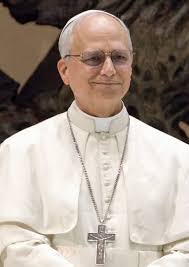The Historical Legacy of Pope Leo: A Closer Look

Introduction
Pope Leo, a name that resonates through the annals of Church history, refers primarily to several influential Popes, including Pope Leo I and Pope Leo XIII. Each played a significant role in shaping not just the Catholic Church but also European politics and society at large. Understanding their contributions is crucial for grasping the evolution of Christian doctrine and practice.
Pope Leo I: Defender of the Faith
Pope Leo I, also known as Saint Leo the Great, served as Pope from 440 to 461 AD. He is perhaps best remembered for his theological work in defining the nature of Christ, famously contributing to the Council of Chalcedon. His writings established a foundation for Christological debates that continue to influence Christian theology today. Additionally, Leo was pivotal in asserting the authority of the papacy, famously declaring that “Peters’ Chair” endowed the Pope with spiritual supremacy over other bishops.
Pope Leo XIII: Moderniser of the Church
Much later, Pope Leo XIII, who reigned from 1878 to 1903, is noted for his efforts to address the challenges posed by modernity, particularly regarding social issues. His encyclical, Rerum Novarum, published in 1891, responded to the rise of socialism and addressed the rights and conditions of workers. Leo XIII’s vision for the Church encouraged engagement with contemporary society, promoting social justice and the importance of moral values in public life.
The Influence of Their Papacies
Both Popes Leo demonstrated an ability to navigate complex political landscapes. Leo I famously negotiated with Attila the Hun to spare Rome, showcasing the papacy’s emerging role in international diplomacy. On the other hand, Leo XIII sought to establish a bridge between faith and reason, advocating for educational reforms and philosophical inquiry within the Church. These aspects underscore the evolving mission of the papacy as a moral and ethical compass through turbulent times.
Conclusion
The legacies of Pope Leo I and Pope Leo XIII continue to be felt within the Church and the broader global community. Their contributions to theology, social teaching, and papal authority serve as reminders of the Church’s enduring influence in our rapidly changing world. As contemporary challenges arise, the lessons from their times prompt reflection on the relevance of faith in addressing modern societal issues.









